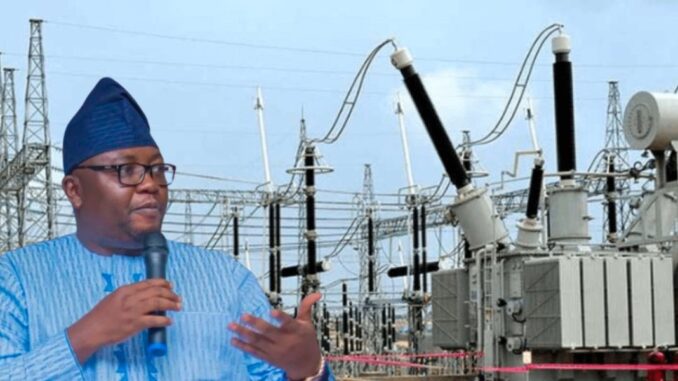
– –
The Federal Government has ordered the immediate replacement of aged equipment as part of the recommendations to stop the incessant collapse of the national grid.
Recall that on Thursday, the national grid collapsed yet again, marking the 11th of such incidents since January 2024. The latest incident occurred following a sudden rise in frequency from 50.33Hz to 51.44Hz, disrupting power in many areas.
Reacting to the development, Minister for Power, Mr. Adebayo Adelabu, has called for the replacement of outdated equipment and immediate action on recommendations made by an investigative committee.
– –
Join Our WhatsApp Group
Don’t miss out on any real-time information. Join our WhatsApp group to stay updated.
The Special Adviser to the Minister, Mr. Bolaji Tunji, confirmed in a statement that all agencies involved in managing the nation’s power grid, including the Transmission Company of Nigeria (TCN), are expected to start implementing these recommendations immediately. He explained that the government’s goal is to finally provide a lasting solution to the grid collapse issues that have caused ongoing disruptions.
Notedly, the inter-agency committee, set up to find out why the national grid keeps collapsing, delivered its report to the Minister on November 6. The committee found that old equipment, poor maintenance practices, and other critical challenges are the main reasons for the frequent grid failures. They recommended a series of actions to improve the grid’s reliability over the next month, six months, and one year.
In the short term, or within the next month, the committee recommended that the government take quick steps such as reviewing and adjusting relay systems, especially at critical points in the grid. They also urged training staff to improve maintenance and system operations, testing key equipment to ensure it is reliable, developing a maintenance plan focused on reliability, and speeding up critical ongoing projects that could help prevent future collapses.
In the medium term, within the next six months, the committee recommended further actions to enhance the grid. These include replacing old and faulty equipment, improving control and communication systems that help monitor the grid, attracting private investment to the power sector, installing Internet of Things (IoT) devices to better monitor power lines and generation units, and securing steady gas supplies for power generation. The committee also advised implementing security measures to protect against vandalism and power theft.
– –
Looking ahead to the next year, the committee suggested enhancing the distribution network and encouraging decentralized grid management, upgrading the grid to a “smart” system that can better handle demand and disruptions, and replacing outdated equipment while introducing renewable energy sources. They also recommended installing optical ground wire (OPGW) technology to replace old optic fibre systems and training more skilled personnel to maintain the grid and manage power effectively.
Reacting to the grid failure yesterday, the TCN in a statement by its General Manager, Public Affairs, Ndidi Mbah, blamed a disturbance at around 11:29am, caused by a sudden rise in frequency from 50.33Hz to 51.44Hz.
Mbah stated that recovery efforts began immediately, adding that the Abuja axis was restored within 28 minutes while recovery for other parts were ongoing.
“The frequency spike was caused by issues encountered at one of our substations, which had to be shut down to prevent further complications. In addition to this, we are actively engaged in significant repair work on several critical transmission lines and substations.
“This includes the 330kV transmission lines along the Shiroro–Mando axis, major upgrades at the Jebba Transmission Substation, and the restoration of the second Ugwuaji–Apir 330kV transmission line.
“Furthermore, following the submission of the investigative report on the causes of previous grid collapses, we have begun addressing the identified weaknesses in the transmission system.
– –
“ Efforts are being made to close the gaps highlighted in the report and to enhance the overall stability and resilience of the grid. These efforts include both technical upgrades and strategic interventions based on the committee’s recommendations.
Join Our WhatsApp Group
Don’t miss out on any real-time information. Join our WhatsApp group to stay updated.
“However, it is important to note that while these repairs and improvements are underway, some degree of instability in the system is likely to persist until all major works are completed. We acknowledge the impact of these disruptions and ask for the understanding and patience of the public during this challenging period,” the TCN stated.
Intel Region News is on WhatsApp!
Share News with us via Email:
:
– –
Leave a Reply